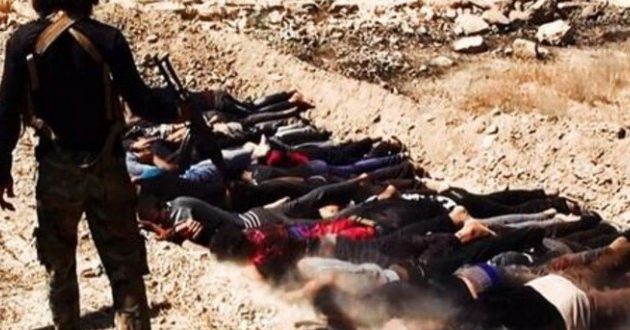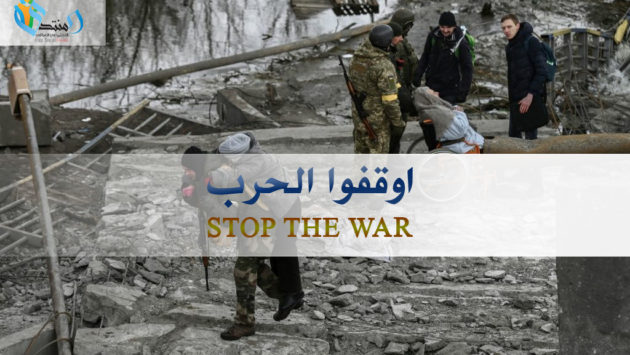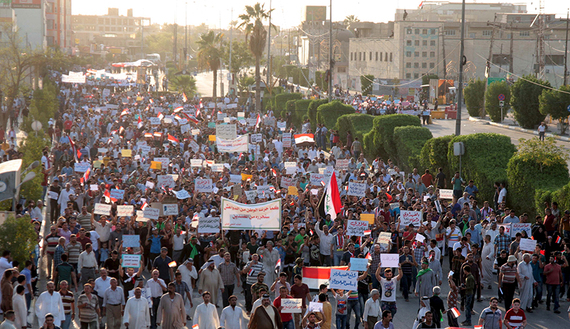Final declaration of the first ICSSI conferenceDéclaration finale de la première conférence ICSSI
1. Trade unionists, activists for human rights and for women’s rights, members of Youth and students unions, members of Ngos, representatives of minorities, women and men, citizens of Iraq and from the international community, including America, Europe and Asia, gathered in Velletri from 25 to 30 March 2009. This was to discuss the challenges that the Iraqi civil society is faced with in continuing to build a free and democratic Iraq, to strengthen alliances and improve cooperation.
2. We have first of all recognised that in Iraq there exists a vibrant Civil Society which is active and committed to the deep problems that still affect Iraq after six years of occupation: grave humanitarian situation, illiteracy, lack of liberties, violation of human rights, violation of workers right, political sectarianism.
3. The Iraqi civil society is composed of thousands of organisations, networks, and volunteers who are committed to confronting all these problems daily with proposals, projects, campaigns, lobbying, demonstrations, rallies, cultural initiatives. Iraqi civil society deserve to have this place on the international stage as an important actor in improving the Iraqi situation and receiving concrete support from the international civil society.
4. The CSOs activity is affected by many factors: violence, political problems, political sectarianism of the society, and weakness of organisational experience. Freedom of association, of gathering, of establish trade union, of the media are still not guaranteed in Iraq. We are worried of this because these freedoms are the core of democracy.
5. During these days all major challenges for a sovereign and democratic Iraq have been deeply discussed by Iraqi and between international and Iraqi participants. Discussion has been concrete and differences have enriched the debate. On this basis Iraqi CSOs will continue their work improving cooperation and developing initiatives.
6. Out of the discussions the international participants gained a deeper knowledge of the Iraqi situation that will enable NGOs and activists of Europe, Asia and America to develop more effective solidarity actions to reinforce global support for the work of Iraqis. Another major outcome was the building of reciprocal knowledge and trust, and the establishment of contacts for future joint actions.
On this basis the participants has proposed a list of joint actions to be developed in the future and will expand this networks and built new alliances by inviting more Iraqi and international organisation to participate to the process of the Iraqi Civil Society Solidarity Initiative.
Support through international raising awareness campaigns on issues identified by Iraqis as – International petition for freedom of association and on NGO Law
– Campaign for advocate for workers rights and for the abolition of law 150 that limit the workers write to establish trade unions.
– Campaigns for improve the women’s position in the society and for the abolition of the art. 41 of Constitution in order to eliminate all the legislative obstacle to gender equality.
– Constitution of the Human Rights Defenders union
– Promote the role of youth in the decision centres.
Cooperation to the capacity building of Iraqi CSOs:
– Trainings on specific issues identified by Iraqis
– Support for activating direct contacts with donors and understanding how to approach them
Develop projects and networks for Peace building , non-violence and internal reconciliation processes and other key concerns identified by Iraqis
In order to strengthen the communication:
– To develop a Internal Social Website for Iraqi Civil Society Solidarity Initiative, in English and Arabic.
– To establish workgroup e-mail lists (on privatization, peace building, etc)
Develop networking and continue the process for the organisation of an Iraq Social Forum
Velletri, March 30th 2009
ICSSI first conference final report (30 March 2009)
1. A Velletri, en Italie, du 25 au 30 mars 2009 se sont réunis des syndicalistes, des militants des droits humains et des droits des femmes, des membres d’organisations de jeunesse et d’organisations étudiantes, des membres d’Organisations Non- Gouvernementales, des représentants des minorités, des femmes et des hommes, citoyens de l’Irak et d’autres pays, y compris d’Amérique, d’Europe et d’Asie. Leurs objectifs étaient de discuter des défis que la société civile irakienne doit affronter pour poursuivre l’édification d’un Irak libre et démocratique, de renforcer leurs alliances et d’améliorer leur coopération.
2. Nous avons tout d’abord constaté qu’en Irak existe une société civile vivante, active et engagée dans la résolution des graves problèmes qui affectent toujours le pays après six ans d’occupation: situation humanitaire grave, analphabétisme, manque de libertés, violations des droits de l’homme, violations des droits des travailleurs, divisions confessionnelles dans le champ politique.
3. La société civile irakienne est composée de milliers d’organisations, de réseaux et de militants qui s’engagent jour après jour pour la résolution de ces problèmes. Ils le font au travers de propositions, de projets, de campagnes d’opinion, d’activités de plaidoyer, de manifestations, de défilés, d’initiatives culturelles.
4. L’activité des organisations de la société civile est affectée de nombreuses manières: par la violence, les problèmes politiques, la présence du confessionalisme politique au sein de la société et la faiblesse organisationnelle. La liberté d’association ou de réunion, le droit de créer des syndicats, la liberté de la presse et des médias ne sont toujours pas garantis en Irak. Ceci nous inquiète car ces droits sont au coeur de la démocratie.
5. Pendant ces journées à Velletri, tous ces immenses défis à affronter pour l’établissement d’un Irak souverain et démocratique ont été discutés en profondeur d’une part par les Irakiens entre eux et d’autre part entre les participants d’autres pays et les participants irakiens, ensemble. La discussion a été concrète et les différences ont enrichi les débats. Sur cette base, les organisations de la société civile irakienne vont poursuivre leur travail en améliorant leur collaboration et en développant des initiatives.
6. Au travers des ces discussions, les participants étrangers ont acquis une connaissance plus approfondie de la situation irakienne. Celle-ci va permettre aux ONG et militants d’Europe, d’Asie et d’Amérique de développer des actions de solidarité plus efficaces pour apporter un soutien renforcé au travail des Irakiens. Un autre résultat fondamental est l’établissement d’une connaissance et d’une confiance mutuelles et de contacts pour des actions communes à venir.
Sur cette base, les participants ont établi une liste d’actions communes à développer dans le futur. Ils vont aussi étendre leur réseau et établir de nouvelles alliances en invitant plus d’organisations irakiennes et internationales à participer au processus de l’Initiative de solidarité avec la société civile irakienne.
Ces actions sont:
• Campagnes internationales d’information et de soutien sur les points ci-dessous, identifiés par les Irakiens:
◦ Pétitioninternationalepourlalibertéd’associationetsurlaloisurlesONG.
◦ Campagne pour les droits des travailleurs et pour l’abolition de la loi n° 150 qui restreint le droit des travailleurs à établir des syndicats.
◦ Campagnes pour l’amélioration de la situation des femmes dans la société et pour l’abolition de l’article 41 de la constitution, de manière à éliminer tous les obstacles de nature législative à l’égalité des sexes.
◦ Constitution d’un syndicat des défenseurs des droits humains.
◦ Promotion du rôle des jeunes dans les instances de décision.
• Coopération pour le renforcement des capacités des organisations de la société civile irakiennes:
◦ Formations sur les points spécifiques identifiés par les Irakiens.
◦ Soutien à l’activation de contacts directs avec des donateurs et formation aux méthodes de présentation et contacts.
• Développement de projets et réseaux pour édifier la paix, la non-violence et les processus de réconciliation interne et autres enjeux clés identifiés par les Irakiens.
• Renforcement de la communication:
◦ Développement d’un site web interne à l’Initiative de solidarité avec la société civile irakienne, en anglais et en arabe.
◦ Etablissement de groupes de travail par listes d’échange courriel (sur la privatisation, l’édification de la paix, etc).
• Développement du travail en réseau et poursuite du processus visant l’organisation d’un Forum social irakien.
Velletri, le 30 mars 2009



